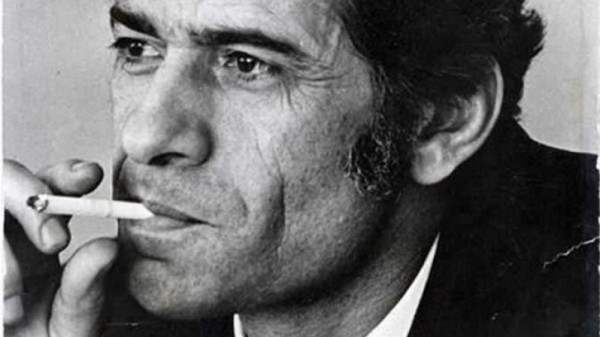Muin Bseiso (1926 – January 23, 1984)
Muin Bseiso also written Mu'in Bseiso was -and remains – one of Gaza’s most influential intellectuals and renowned poets. After Israel occupied the Gaza Strip in 1967, he lived in exile for the rest of his life, hopping from one country to another.
Every phase of Bseiso’s literary work carried clues to the struggle faced by Palestinians throughout their modern history, which he echoed in his poems until his passing. His words spoke of resistance, love, torture chambers and naked walls, children coloring on a beach, exile … oh, the endless exile.
But Resistance featured prominently in almost everything he wrote.
“If I fall, comrade, in the struggle, take my place,
And gaze at my lips as they halt the madness of the wind.
I have not died … I am still calling you from beyond my wounds.
Sound your drums, so that the whole people may heed your call and fight …” (The Battle)
Bseiso, finished his primary and secondary education in Gaza in 1948. He started publishing his work in the Jaffa-based magazin Al-Hurriya (“Liberty”), where he published his first poems in 1946. In 1948, he enrolled in the American University in Cairo and subsequently graduated in 1952. His dissertation was titled "The Spoken or Head Word in Lower Eastern Broadcast Media", discussing the borders between radio and TV on one hand and the printed newspaper media on the other. On January 27, 1952 he published his first work titled Al-Ma’raka (“The Battle”).
He published several other volumes of poetry: Palestine in the Heart, (1964), Trees Die Standing (1966). He was imprisoned in Egyptian jails in Gaza twice: 1955 to 1957 and 1959 to 1963. In one of them he met his future wife, Sahbaa al-Barbari, one of the first women communists in Gaza.
Awards:
The Afro-Asian Lotus Prize for Literature.
Recipient of the Palestinian Dir' Al-Thawra or Shield of Revolution.
He died due to heart failure in London in 1984. His family was denied permission by Israel to have his remains buried in Gaza.




